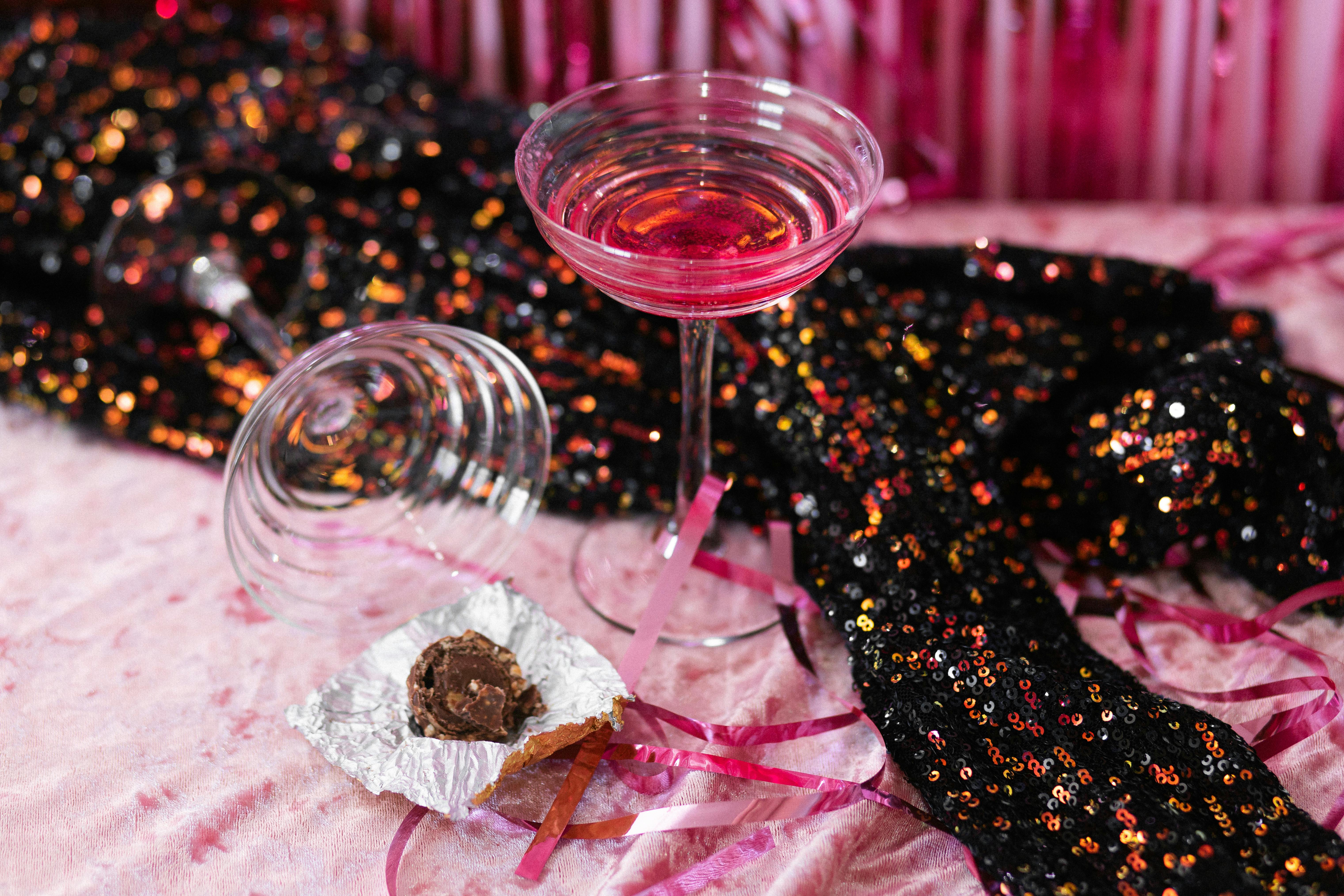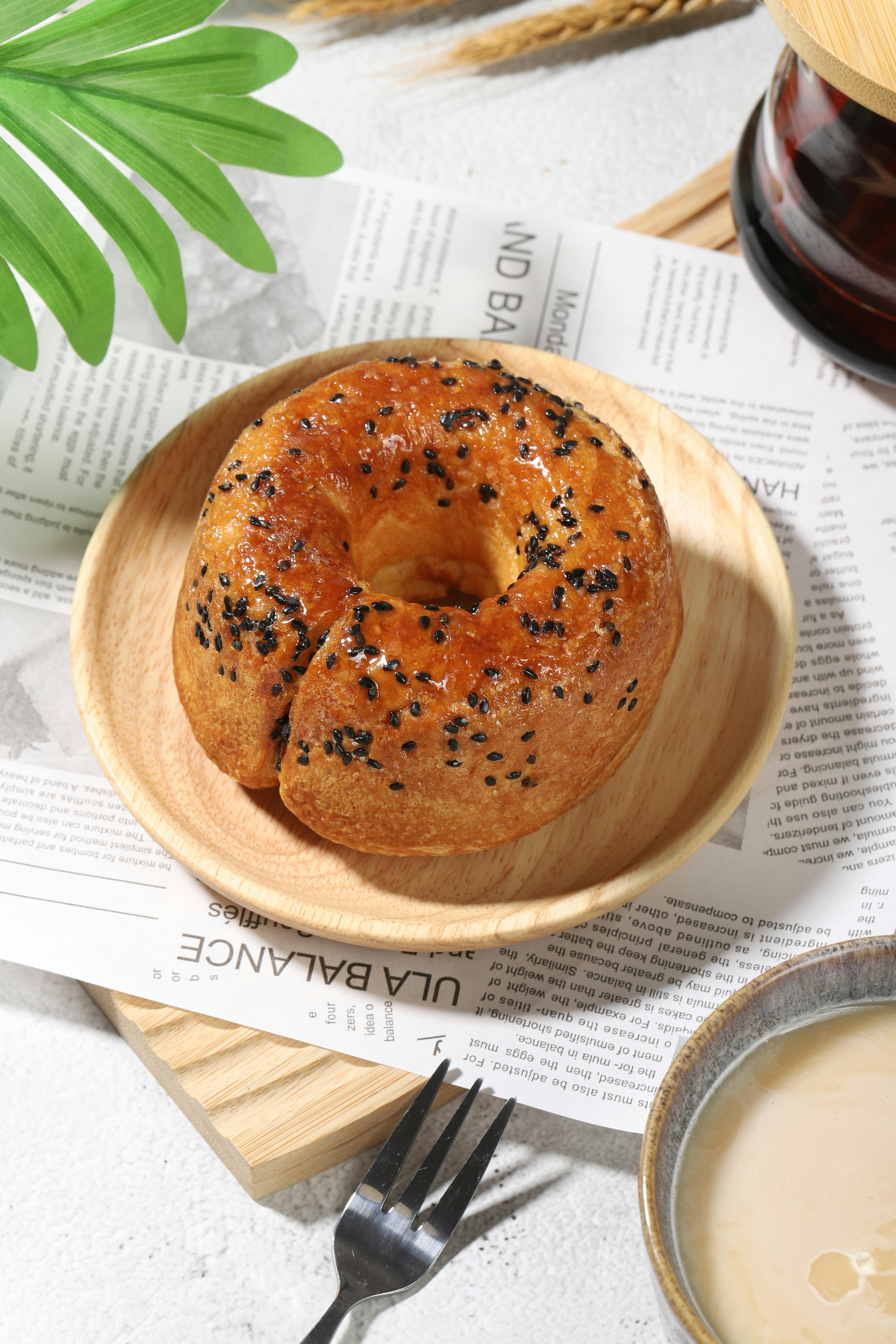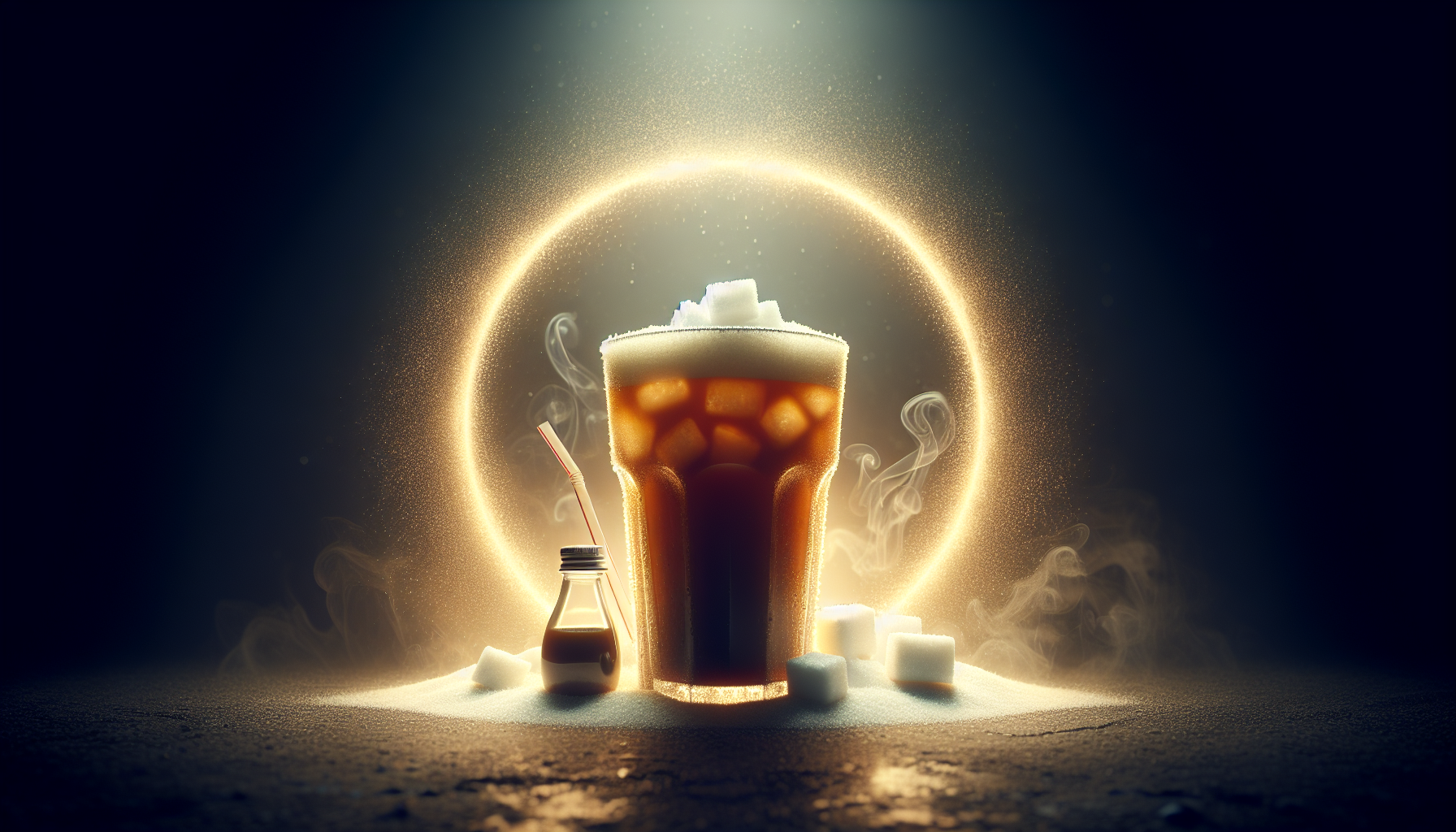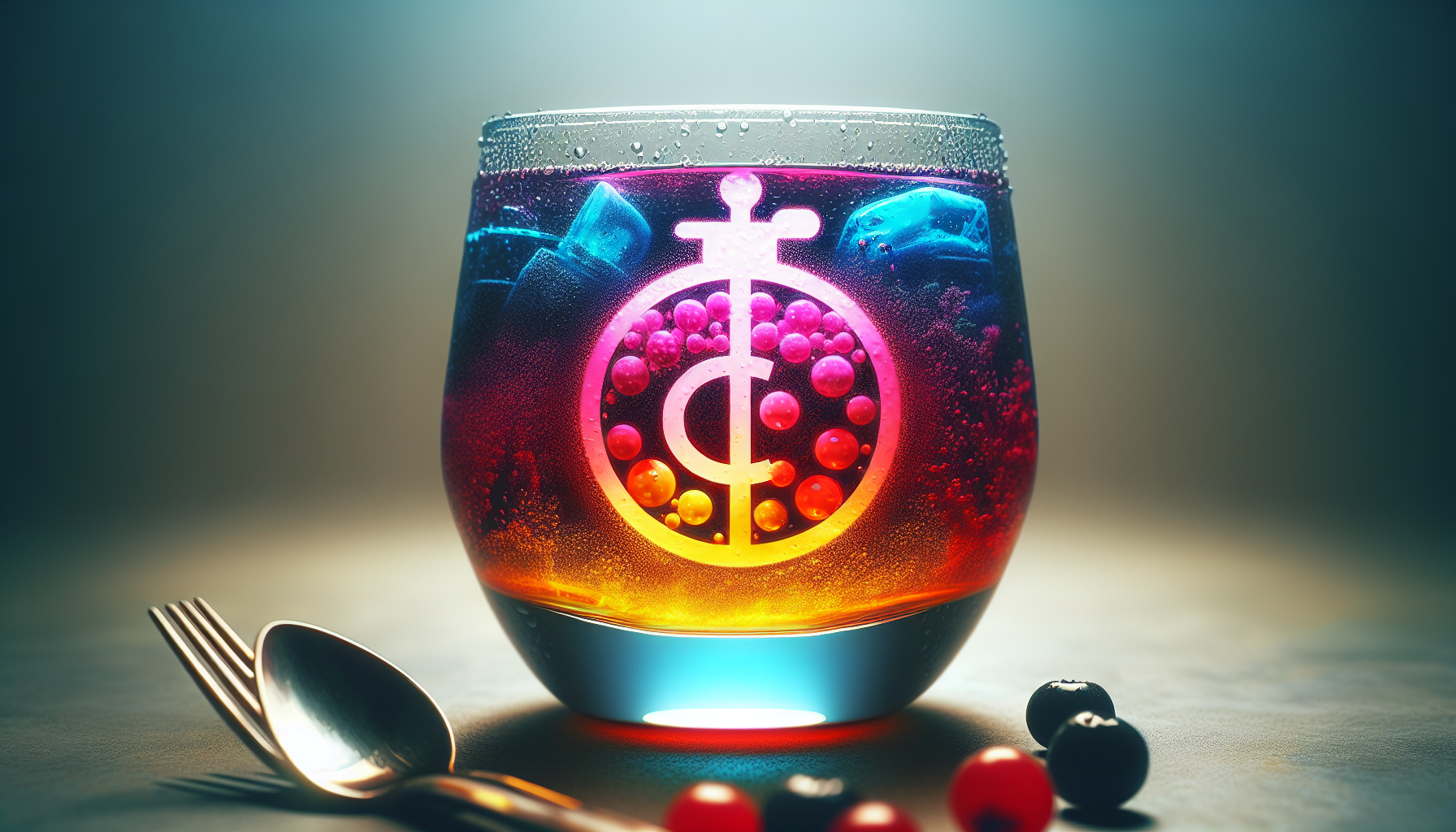So, you know that soda and sugary drinks aren’t exactly the healthiest option out there. But did you know that your favorite beverages might be hiding more calories than you think? It’s true! From fancy mochas to fruity smoothies, many popular drinks are loaded with hidden calories that can really add up. That innocent-looking iced coffee you enjoy every morning? It could be packing a surprising amount of sugar and calories. And that seemingly innocent glass of fruit juice? Brace yourself, because it might be packing just as much sugar as a can of soda! So next time you reach for that refreshing drink, make sure to check the label or ask for the nutritional information. Remember, it’s always a good idea to consult a health professional before making any changes to your diet or exercise routine.

Discover the Ultimate Weight Loss Secrets Here!
Sugary Beverages
When it comes to sugary beverages, it’s no secret that they can pack a calorie punch. From soda to fruit juice and sweetened iced tea to energy drinks, these drinks are often laced with added sugars that can quickly add up. While they may taste delicious, it’s essential to be mindful of the impact they can have on your overall calorie intake and health.
Soda
Soda, also known as carbonated soft drinks, is a popular choice for many people. However, it is important to note that these beverages are high in calories and added sugars. A can of regular soda can contain anywhere from 140 to 200 calories, and sometimes even more. Opting for diet soda or sugar-free alternatives can be a better choice for those looking to cut back on calories and added sugars.
Fruit Juice
Fruit juice is often perceived as a healthier choice than soda, but it can still be loaded with hidden calories. While fruit juice does contain natural sugars from the fruit, it lacks the fiber found in whole fruits, making it easier to consume a higher quantity in one sitting. Additionally, some fruit juices may have added sugars, further increasing the calorie content. It is important to read labels and choose 100% fruit juice with no added sugars whenever possible.
Sweetened Iced Tea
For those who enjoy iced tea, it’s essential to be aware of the sugar content. Sweetened iced tea can be a significant source of added sugars, which can contribute to weight gain and other health issues. Opting for unsweetened or lightly sweetened varieties, or making your own at home with minimal added sugars, can help reduce the calorie impact of this popular beverage.
Energy Drinks
Energy drinks have gained popularity in recent years, especially among individuals seeking a boost of energy for workouts or busy days. However, these drinks often contain high amounts of sugar and caffeine, which can lead to increased calorie intake and unwanted side effects. While occasional consumption may not be harmful, it is essential to be mindful of the calories and consider healthier alternatives such as natural energy-boosting foods or drinks like green tea or matcha.
Coffee and Tea
Coffee and tea are beloved beverages for many, and they can be enjoyed in a variety of ways. However, it’s important to keep in mind that what you add to your coffee or tea can significantly impact its calorie content.
Milk and Sugar
Adding milk and sugar to your coffee or tea can make for a tasty treat but can also add extra calories. One teaspoon of sugar adds approximately 16 calories, while adding cream or milk can contribute additional calories and fat. Consider reducing the amount of sugar or using low-calorie sweeteners and opting for lower-fat milk options to reduce the calorie impact.
Flavored Syrups
Flavored syrups have become popular additives for coffee and tea, offering a range of delicious flavors. However, these syrups are often high in sugar and can quickly elevate the calorie content of your favorite beverages. Consider using natural flavorings like extracts or spices to add taste without the added sugars and calories.
Whipped Cream and Toppings
Whipped cream and other toppings can turn a regular coffee or tea into a decadent dessert-like treat. While they may be enjoyable on occasion, it’s important to be mindful of the extra calories they can contribute. Opting for lighter alternatives like low-fat whipped cream or skipping the toppings altogether can help you reduce your overall calorie intake.
Specialty Beverages
Specialty coffee or tea beverages, such as lattes, cappuccinos, or frappuccinos, can be delicious indulgences. However, these drinks often incorporate syrups, sauces, and whipped cream, which can significantly increase their calorie content. Enjoying these beverages occasionally and opting for smaller sizes can help you manage your overall calorie intake while still savoring these treats.
Click Here for Proven Fat-Burning Strategies!
Alcoholic Beverages
Alcoholic beverages can be enjoyed in moderation, but it’s crucial to be aware of their potential calorie impact. The calorie content in alcoholic beverages can vary significantly depending on factors such as the type of drink, portion size, and added mixers.
Beer
Beer is a popular choice among many, but it’s essential to know that it can be calorie-dense. Certain types of beer, such as craft beers or stouts, can have a higher calorie content due to their higher alcohol or sugar content. Opting for lighter beer options or moderating your intake can help manage the impact on your overall calorie consumption.
Wine
Wine is a beverage enjoyed by many, and while it may have some health benefits when consumed in moderation, it can also contribute to your calorie intake. Wine contains calories from alcohol and natural sugars, which can add up quickly if consumed in excess. Being mindful of portion sizes and choosing lower-alcohol or sugar-free wine options can help reduce the caloric impact.
Cocktails
Cocktails can be a delightful, refreshing way to enjoy alcoholic beverages, but they often contain added sugars and mixers that can significantly increase their calorie content. Fruity and blended cocktails, in particular, can be high in calories. Opting for simpler cocktails made with low-sugar mixers or light spirits, and keeping portion sizes in check, can help you enjoy your favorite drinks while managing your calorie intake.
Spirits and Mixers
Straight spirits like vodka, gin, or rum typically have a lower calorie content than mixed drinks. However, be cautious of the mixers you choose, as they can contain added sugars and calories. Opting for zero-calorie mixers like soda water or choosing light versions of your favorite mixers can help you enjoy your spirits without a significant increase in calories.
Smoothies and Milkshakes
Smoothies and milkshakes can be a delicious way to enjoy a beverage while incorporating fruits, dairy, or other ingredients. However, it’s important to be aware of the ingredients and portion sizes, as these beverages can often be calorie-dense.
Fruit Smoothies
Fruit smoothies can be a healthy way to incorporate fruits into your diet. However, some smoothies can contain added sugars or high-calorie ingredients like syrups, yogurt, or ice cream. Choosing smoothies made with whole fruits, minimal added sugars, and lighter bases like water, unsweetened almond milk, or low-fat yogurt can help you enjoy a refreshing beverage without adding unnecessary calories.
Protein Shakes
Protein shakes are commonly consumed by individuals looking to supplement their protein intake for various reasons, such as muscle gain or post-workout recovery. While protein shakes can be a convenient option, it’s important to be mindful of the additional ingredients that can contribute to the calorie content, such as sweeteners, fruits, or nut butter. Opting for protein shakes made with natural ingredients and minimal added sugars can help you get the benefits of protein without excess calories.
Milkshakes
Milkshakes are a classic treat loved by many, but they are typically high in calories and added sugars. These creamy delights often incorporate full-fat ice cream, flavored syrups, and whipped cream, contributing to their calorie-dense nature. Enjoying a milkshake as an occasional indulgence or opting for lower-calorie versions made with lighter ice creams or alternative milks can help you manage your calorie intake while still satisfying your cravings.
Iced Coffee Blends
Iced coffee blends, like frappuccinos or coffee milkshakes, are popular options for those looking to enjoy coffee in a cold and refreshing way. However, these beverages can often be high in calories and added sugars, primarily due to the addition of syrups, sauces, or sweetened whipped cream. Choosing lighter options with reduced or no added sugars, using low-fat milk or milk alternatives, and requesting smaller sizes can help you satisfy your coffee cravings without the excessive calories.

Unlock Your Path to a Healthier You!
Sports and Fitness Drinks
Sports and fitness drinks are commonly used by individuals engaged in physical activities or workouts to replenish electrolytes and provide energy. While they can be beneficial in certain situations, it’s important to be mindful of their calorie content and potential impact on your overall intake.
Sports Drinks
Sports drinks are specifically formulated to provide hydration and replenish electrolytes during intense physical activities or prolonged exercise. While they can be beneficial in those scenarios, they can also be high in calories and sugar. For individuals engaging in moderate activity or shorter workouts, plain water is usually sufficient to stay hydrated without the additional calories.
Electrolyte Enhancers
Electrolyte enhancers, such as electrolyte powders or drops, are designed to be added to water to replenish electrolytes lost through sweat and physical activity. While they can provide necessary minerals, some enhancers may also contain added sugars or artificial sweeteners, contributing to calorie intake. Choosing enhancers with minimal added sugars or opting for natural electrolyte sources like coconut water can provide the necessary electrolytes without excessive calories.
Protein Shakes
Protein shakes, as mentioned earlier, are often consumed for post-workout recovery. They can provide essential amino acids for muscle repair and growth. However, it’s important to be aware of the additional calorie content in protein shakes, especially if they contain added sugars or high-calorie ingredients. Considering lighter protein shake options or incorporating protein from natural food sources can be a more calorie-conscious choice.
Pre- and Post-Workout Drinks
Pre- and post-workout drinks are marketed as enhancing performance, providing energy, or aiding in recovery. While they may offer benefits in specific situations, it’s important to choose these beverages wisely to avoid excessive calorie intake. Be cautious of high-sugar options or products with unnecessary added ingredients. Opting for natural sources of energy like fruit or nuts and rehydrating with water can be effective alternatives.
Bottled and Packaged Beverages
Bottled and packaged beverages come in various forms and flavors, ranging from flavored waters to iced coffee drinks. While they can be convenient options, it’s crucial to be mindful of their calorie content and the presence of added sugars or artificial ingredients.
Fruit Flavored Water
Flavored waters have gained popularity as a healthier alternative to sugary beverages. However, it’s important to read labels and be cautious of their calorie content, as some flavored waters can still contain added sugars or artificial sweeteners. Opting for options with no added sugars, natural flavors, and minimal calories can help you stay hydrated without overloading on calories.
Flavored Milk
Flavored milk, especially chocolate milk, is often marketed as a post-workout or recovery beverage due to its content of protein and carbohydrates. While it can have its benefits in certain situations, it’s important to be aware that flavored milk can be high in calories and added sugars. For those looking to minimize their calorie intake, choosing plain milk or low-sugar varieties can be a better option.
Packaged Iced Coffee
Packaged iced coffee drinks have become a popular choice for coffee enthusiasts on the go. However, it’s important to be mindful of their calorie content, as many packaged iced coffees can contain added sugars, syrups, or creamers. Reading labels and choosing options with no added sugars or lighter alternatives can help you enjoy your favorite iced coffee without the excess calories.
Sweetened Tea
Sweetened tea, commonly found in pre-packaged bottles or cans, can be a tasty and refreshing choice. However, it’s crucial to be aware of the calorie content, as these beverages can contain high amounts of added sugars. Opting for unsweetened or lightly sweetened varieties can help you enjoy the flavor of tea without compromising too many calories.

Hidden Calories in Water
Water is essential for hydration and overall health. However, it’s important to be aware that some water-based beverages can contain hidden calories, mostly in the form of added sugars.
Flavored Water
Flavored water has gained popularity as a way to make water more enjoyable for those who struggle with plain water. However, some flavored waters can contain added sugars or artificial sweeteners, which can increase the calorie content. Reading labels and choosing options with no added sugars or natural flavorings can help you satisfy your taste buds without consuming unnecessary calories.
Infused Water
Infused water, made by adding fruits, vegetables, or herbs to water, can be a refreshing and flavorful option. While infused water generally does not contain added sugars, it’s important to keep in mind that some ingredients can release natural sugars, contributing to the calorie content. Choosing low-sugar ingredients and monitoring portion sizes can help you enjoy infused water without adding excess calories.
Enhanced Water
Enhanced water, such as vitamin-infused or electrolyte-enhanced water, can offer additional benefits beyond hydration. However, it’s important to be aware that some enhanced waters can contain added sugars, artificial sweeteners, or other ingredients that increase their calorie content. Reading labels and choosing options with minimal added sugars or artificial ingredients can help you make healthier choices.
Caloric Impact of Artificial Sweeteners
Artificial sweeteners are often used as sugar substitutes in various beverages, particularly in low-calorie or sugar-free options. While they can provide a sweet taste without the added calories, it’s essential to understand their potential impact on your overall calorie intake.
Diet Soda
Diet sodas, which use artificial sweeteners instead of sugar, are often marketed as low or zero-calorie alternatives to regular soda. While they do contain fewer calories, it’s important to remember that they still provide a sweet taste due to the artificial sweeteners used. While they can be a better option for those looking to reduce their sugar or calorie intake, it’s important to consume them in moderation and maintain a balanced diet overall.
Low-Calorie Energy Drinks
Low-calorie or sugar-free energy drinks are designed to provide an energy boost without the added calories. However, it’s important to be mindful of the potential side effects of consuming artificial sweeteners in large quantities, as some individuals may experience digestive discomfort or other adverse reactions. If you choose to consume low-calorie energy drinks, do so in moderation and pay attention to how your body reacts.
Sugar-Free Syrups
Sugar-free syrups are popular additives for coffee, tea, or specialty beverages for those looking to reduce their sugar intake. While they can provide a sweet flavor without the added calories, it’s important to note that they often contain artificial sweeteners. Monitoring your intake of sugar-free syrups and considering natural alternatives like extracts or spices can help you strike a balance between flavor and health.

Reading Labels for Hidden Calories
When selecting beverages, it’s important to read labels and understand the information provided. This can help you identify hidden calories and make more informed choices.
Understanding Serving Sizes
One crucial aspect of reading labels is understanding the serving sizes listed. Many beverage containers may contain multiple servings, meaning the calorie and nutrient information provided is per serving. It’s essential to pay attention to the serving size and consider how it aligns with your portion control goals.
Identifying Added Sugars
Labels often list the total sugar content, but it’s important to differentiate between naturally occurring sugars and added sugars. Added sugars can contribute empty calories without providing nutritional value. Therefore, it’s crucial to look for beverages with minimal or no added sugars.
Checking for Artificial Ingredients
Reading labels allows you to identify artificial ingredients or additives that may be present. Some artificial ingredients, such as sweeteners or flavorings, can add calories without providing any nutritional benefits. Opting for beverages with natural, recognizable ingredients can be a healthier choice.
Decoding Marketing Claims
Labels can sometimes be misleading, with marketing claims designed to make the product appear healthier than it actually is. Being skeptical of claims like “all-natural,” “low-sugar,” or “low-fat” and reading the ingredient list and nutrition facts can help you see past the marketing and make informed decisions about your beverage choices.
Seeking Health Professional Advice
While this article provides valuable information about the hidden calories in your favorite beverages, it is essential to remember the significance of consulting a health professional before making any changes to your diet or exercise routine.
Importance of Consulting a Health Professional
Every individual has unique health needs and goals, and consulting a health professional, such as a registered dietitian or doctor, can provide personalized guidance and advice. They can help assess your overall health, guide you on specific dietary restrictions or requirements, and provide recommendations tailored to your individual needs.
Customizing Beverage Choices
Working with a health professional allows you to customize your beverage choices based on your health goals, dietary restrictions, or personal preferences. They can help you explore alternatives, make healthier choices, and create a well-balanced and enjoyable beverage plan that suits your lifestyle.
Monitoring Caloric Intake
A health professional can assist in monitoring your caloric intake and helping you create a better understanding of how your favorite beverages contribute to your overall calorie consumption. With their guidance, you can learn to make more mindful choices and ensure that your beverage habits align with your goals.
Combining Beverages with a Healthy Diet and Exercise
Lastly, a health professional can help you integrate your beverage choices into a broader plan that incorporates a balanced diet and regular exercise. They can provide recommendations on portion sizes, timing of consumption, and how to make the most of your beverages to support your overall health and well-being.
In conclusion, being aware of hidden calories in your favorite beverages is crucial for maintaining a balanced and healthy lifestyle. Sugary beverages, coffee and tea, alcoholic beverages, smoothies and milkshakes, sports and fitness drinks, bottled and packaged beverages, as well as water-based beverages, all have the potential to contribute to your overall calorie intake. By reading labels, understanding serving sizes, identifying added sugars, and being mindful of artificial ingredients or marketing claims, you can make more informed choices about what you drink. However, it is always recommended to seek advice from a health professional who can provide personalized guidance and ensure that your beverage choices align with your overall health goals. Remember, consulting a health professional is essential before making any changes to your diet or exercise routine. Stay hydrated, be mindful of hidden calories, and enjoy your favorite beverages in moderation.

